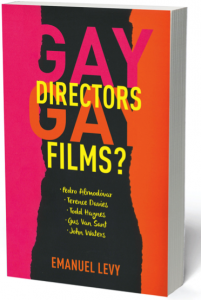I was reminded by two loyal readers that today marks the 72nd birthday of Karen Anne Carpenter (born March 2, 1950), the American singer and drummer, who has become an even bigger icon after her death than she ever was in her lifetime.
(She died 40 years ago, February 4, 1983).
| Superstar: The Karen Carpenter Story | |
|---|---|

video release (underground black market)
|
|
She formed half of the sibling duo, “The Carpenters,” alongside her older brother Richard.
Karen Carpenter was perhaps one of the most popular women at one time. Her voice was one of the reasons for the massive success of the group ‘The Carpenters.
But behind her outward persona of joy lurked some secrets which ended up taking her life.
Karen and Richard Carpenter were one of the most successful acts of their time. They sold over 100 million records in the 1970s. This propelled them to the level of stardom that perhaps no sibling duo had ever reached before.
But behind the success and happiness, there were issues that the public did not know about.
Karen grew up chubby, with a height of 5″ 4 and weight of 145 pounds. She worked on losing weight and reached 120 pounds. The singer’s hard working and extensive touring led to all kinds of problems, including establishing proper eating schedule.
Blessed with a distinctive contralto range, she was praised by peers for her vocal skills. Carpenter’s struggle with and eventual death of heart failure, which was directly related to years-long battle with anorexia.
Her death would later raise awareness of eating disorders and their possible causes. But it also inadvertently launched the career of seminal indie filmmaker Todd Haynes (Far from Heaven, Carol).
The audacity of Haynes’ debut, the 43-minute short, “Superstar: The Karen Carpenter Story,” derives from its inspired casting concept. The anorexic singer, her brother Richard, and their tyrannically overbearing parents are all portrayed as Barbie-type dolls.
The film’s title derives from The Carpenters’ 1971 hit, “Superstar.
Haynes experimental short, co-written and co-produced by him and Cynthia Schneider, portrays the last 17 years of Carpenter’s life. It was filmed over a ten-day period at Bard College in the summer of 1985. Barry Ellsworth was the cinematographer for the Barbie themed interior segments.
Haynes never cleared the rights for the Carpenters’ music, and Richard Carpenter blocked the film’s theatrical release.
Nonetheless, “Superstar” went on to become an outlaw film, circulating on bootlegged videos and later DVDs.
As a result, Haynes became an underground indie figure even before his 1991 feature debut Poison, which won the Grand Jury prize at the Sundance Film Festival and launched the New Queer Cinema (alongside works by Gus Van Sant, Gregg Araki, and others).
With a distinctive three-octave contralto range, she was praised by her peers for her vocal skills. Carpenter’s struggle and eventual death of heart failure related to years-long battle with anorexia would later raise awareness of eating disorders.
The film is sympathetic to Karen, but her parents, Harold and Agnes, are depicted as overly controlling, keeping Karen at their home even after she turned twenty-five.
Richard Carpenter is portrayed as a man who sided with his parents, a selfish artist more concerned with his career than with Karen’s health. In one scene, he berates an obviously fatigued and ill Karen for failing to meet “professional duties, yelling: “What are you trying to do? Ruin both of our careers?”
Haynes insinuates during a fight between Richard and Karen over her use of Ex-Lax, that Richard had a secret that he didn’t want his parents to know about. Haynes’ dark treatment of the often relies on black, unreadable captions.
There’s a repeated overhead view of a person shown in over-the-knee spanking to the bare-bottomed adult Barbie Karen.
Upon its release, the short was art hit at several film festivals. However, when Richard Carpenter viewed the film, he became irate with its portrayal of his family.
Haynes had never obtained music licensing from either Richard or the Carpenters’ label A&M Records, for the songs in the film. Richard sued Haynes for failing to obtain the clearances and succeeded in blocking Superstar’s theatrical release.
The Museum of Modern Art retains a copy of this film, but in an agreement with The Carpenter Estate, they are unable to exhibit it. Nevertheless, bootleg copies remain in circulation, and it can still be seen on YouTube.
Cast
Gwen Kraus and Bruce Tuthill as Narrators
Merrill Gruver as Karen Carpenter
Michael Edwards as Richard Carpenter
Melissa Brown as Mother
Rob LaBelle as Father
Nannie Doyle as Cherry Boone
Cynthia Schneider as Dionne Warwick
Larry Kole as Announcer
Todd Haynes as Todd Donovan
Michelle Manenti
Moira McCarty
Richard Nixon as himself
Ronald Reagan as himself
Credits
Produced, directed, edited by Todd Haynes
Written by Haynes, Cynthia Schneider
Produced by Todd Haynes
Narrated by Gwen Kraus, Bruce Tuthill
Cinematography Barry Ellsworth
Music by The Carpenters
Production company: Iced Tea Productions
Distributed by American International Video Search, Inc.
Release date: April 30, 1988
Running time: 43 minutes











